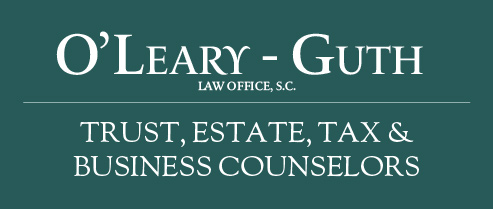What to do First When a Loved One Dies?
Posted: January 30, 2022
Written by Alicia Bernards, Law Clerk
When a loved one passes away, the tasks to be accomplished can seem overwhelming. Whether you are dealing with a large estate or smaller estate, handling a loved one’s affairs can be difficult, especially in a time of grief. It can be helpful to organize tasks into a step-by-step process. This article provides a brief overview of some initial steps to consider when a loved one dies.
Step One – Be present with your family and friends. This step may seem obvious, but it is easy to be overwhelmed by tasks in the days and weeks following a loved one’s death. Take the time needed to arrange the funeral and spend time with family and friends. There might be a few urgent matters that require immediate attention (like caring for the decedent’s pets and securing the decedent’s residence), but typically the legalities do not need immediate attention.
However, don’t wait too long, because there can be some time sensitive tax considerations that need to be addressed. We generally recommend contacting a trusts and estate attorney within two weeks of death for an initial consultation.
Step Two – Locate the decedent’s estate planning documents. Whether the decedent has just a Will or a more complex estate plan, knowing what documents the decedent had in place is essential.
If Documents are Found. In most cases, the distribution of a decedent’s assets are governed by a Will or Living Trust or both (referred to in this article as an “estate plan”). If the decedent’s estate plan is located, identify who is named in the documents as the decedent’s executor or trustee (as the case may be). If the person(s) named in the estate plan are not able or willing to take the lead, consider who else might be willing to do so. Arrange to have a copy of the estate plan delivered to the attorney in advance of the meeting, if possible.
If Documents are Not Found. If the decedent does not appear to have an estate plan, state law will govern the process to appoint an executor to administer the estate, and how assets should be transferred.
Step Three – Prepare an inventory of the decedent’s assets and debts. This may be an ongoing process. However, it is important to determine what the decedent owned (and owed) when they died. Provide a copy of the inventory to the attorney hired to administer the decedent’s estate so he or she can determine what steps need to be taken to transfer those assets to the proper recipient(s).
Common assets to look for include, but are not limited to:
- Real Estate
- Bank Accounts
- Stocks and Bonds
- Annuities
- IRA or 401(k) Accounts
- Life Insurance
- Business Interests
- Vehicles (cars, boats, etc.)
- Jewelry
- Artwork
Some tips to help you identify a decedent’s assets include monitoring the decedent’s mail for a period of time to see what type of monthly statements arrive and to review a copy of the decedent’s most recently filed income tax returns to see what assets were reported.
Step Four – Contact a Trusts and Estates Attorney. Regardless of the amount of assets involved, a meeting with an experienced trusts and estates attorney can help determine what steps need to be taken, whether probate is necessary, what tax returns need to be filed, and should set your mind more at ease.
An attorney can be very helpful throughout the entire estate administration and trust administration process, as applicable.
-
Estate Administration. Estate administration refers to probate, which is a court-supervised process of managing and transferring assets after one’s death. However, many estates avoid probate through tools such as joint ownership with rights of survivorship, trusts, beneficiary designations, or pay-on-death designations. Simply having a Will does not avoid probate. A Will is a tool used by courts to determine how assets should be transferred if probate is necessary.
-
Trust Administration. Trust administration refers to the process of managing and transferring trust assets. Trusts are a common tool used to avoid probate. The Trustee will need to determine what assets are already owned by the trust, what assets pass to the trust, and administer the trust assets pursuant to the terms of the Trust Agreement and state law.
Trust and estate administration can be straightforward and without undue delay if an experienced attorney is retained to oversee the process. Please let us know if you would like to discuss how we might be of assistance with an estate or trust administration.
Schedule an appointment with us today.
Meet with a knowledgeable attorney who specializes in your area of law.
1251 W. Glen Oaks Lane, Mequon, WI 53092
F: (262) 238-6999

